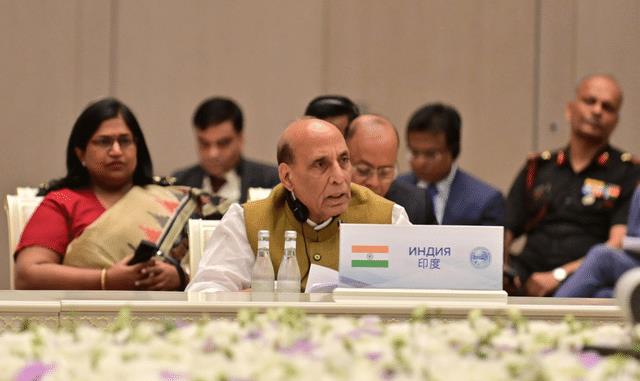
Borders Can Change, Sindh In Pakistan May Return To India, Says Indian Defence Minister Rajnath Singh
According to Indian media, Defence Minister Rajnath Singh, during an event on Sunday at the Sindhi Samaj Sammelan in New Delhi, stressed the deep civilizational connection between India and Sindh. While Sindh is no longer part of India following the 1947 Partition, Singh emphasized that the region remains an integral part of India's cultural and historical heritage.
He remarked,“Civilisationally, Sindh will always be a part of India,” adding that geopolitical boundaries are not permanent. He even suggested that Sindh might one day return to India, stating,“Who knows, tomorrow Sindh may return to India again.”
As reported by India Today, Singh's remarks resonated with the emotional ties felt by the large Sindhi community in India, many of whom trace their roots back to Sindh. The region, which is also the birthplace of the Indus Valley Civilization, holds profound significance for Sindhi Hindus, who continue to preserve cultural traditions tied to their ancestral homeland. Singh's comments underscored the lasting cultural and historical connections that transcend the borders drawn in 1947.
The Defence Minister also referenced BJP veteran Lal Krishna Advani's writings, which highlighted the emotional impact of Sindh's separation from India. Advani had noted that many Sindhi Hindus, particularly from his generation, had not fully accepted the division of Sindh from India. Singh pointed out that both Sindhi Hindus and Muslims historically regarded the Indus River as sacred, reinforcing the strong cultural bond between the people of Sindh and India.
Singh's statements have drawn significant attention, especially given the sensitive timing following the May Operation Sindoor. His remarks about Sindh potentially returning to India could further strain diplomatic ties between India and Pakistan, adding a new layer to the already tense relationship. The comments are likely to provoke strong reactions from Pakistan in the coming days.
Singh's remarks underscore the deep-rooted cultural and emotional connection between India and Sindh, particularly among the Sindhi diaspora. Despite political divisions, the shared history, culture, and religion continue to shape the identities of Sindhi people, making them an enduring part of India's national consciousness.
Rajnath Singh's comments on Sindh and the Citizenship Amendment Act have reignited discussions on the complexities of India-Pakistan relations and the protection of persecuted minorities. His speech is likely to influence future diplomatic dialogues and shape public opinion on the issues of cultural identity, national borders, and minority rights in South Asia.
ShareFacebook Twitter WhatsApp Email Print Telegram
Legal Disclaimer:
MENAFN provides the
information “as is” without warranty of any kind. We do not accept
any responsibility or liability for the accuracy, content, images,
videos, licenses, completeness, legality, or reliability of the information
contained in this article. If you have any complaints or copyright
issues related to this article, kindly contact the provider above.


















Comments
No comment